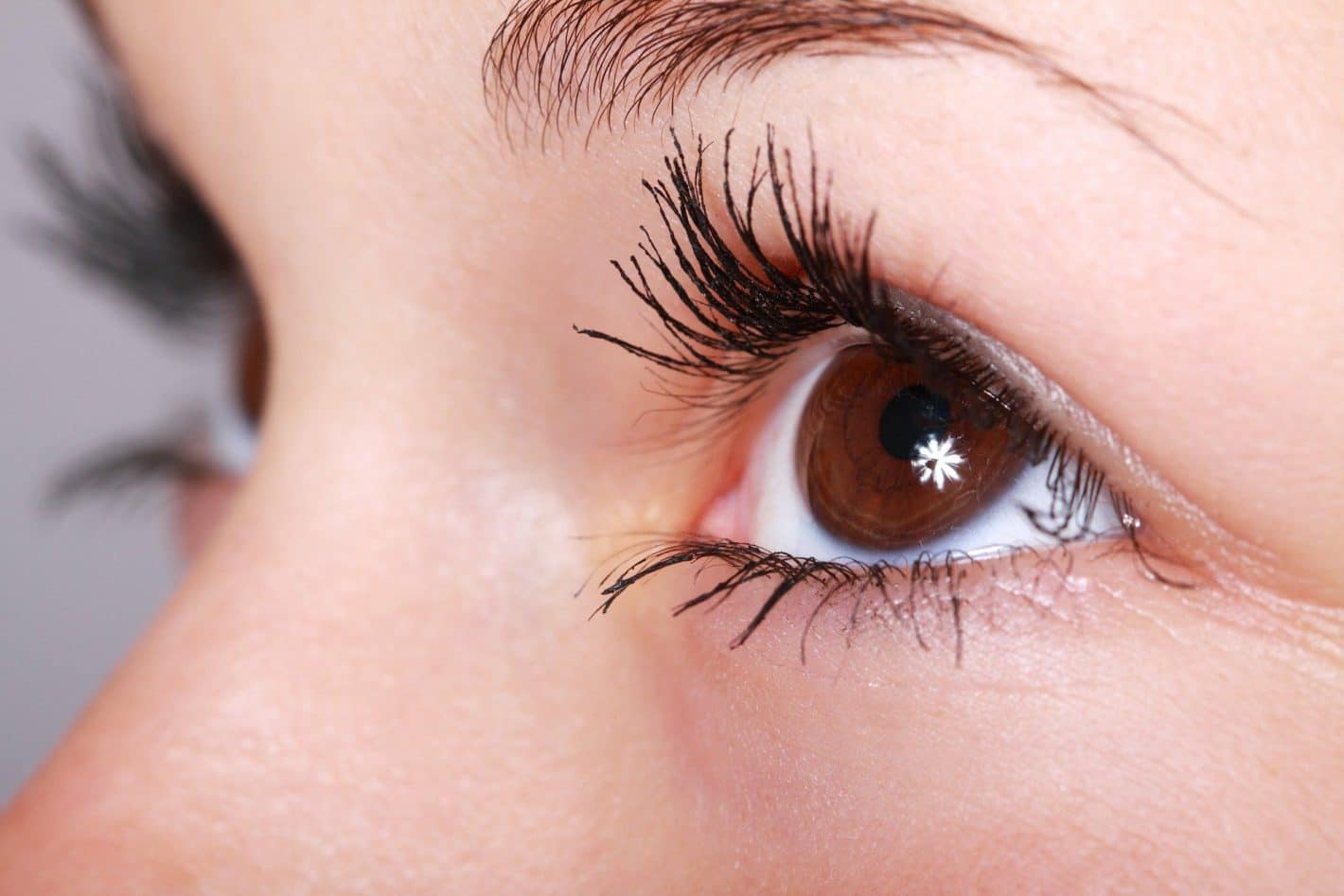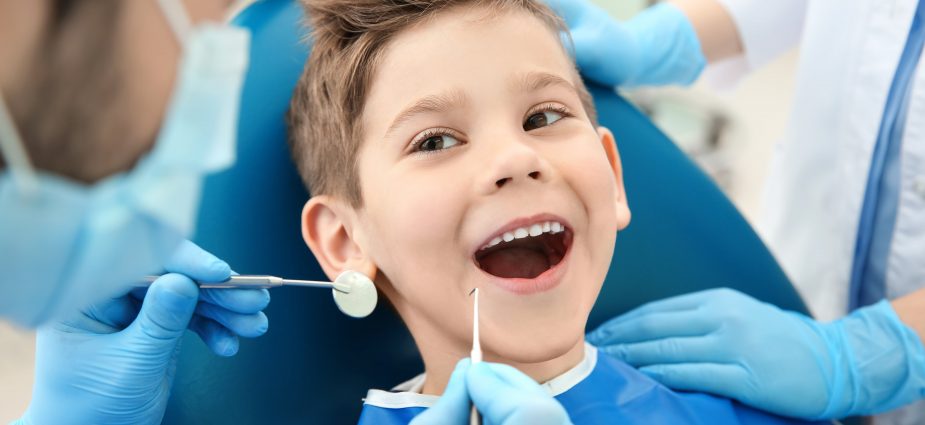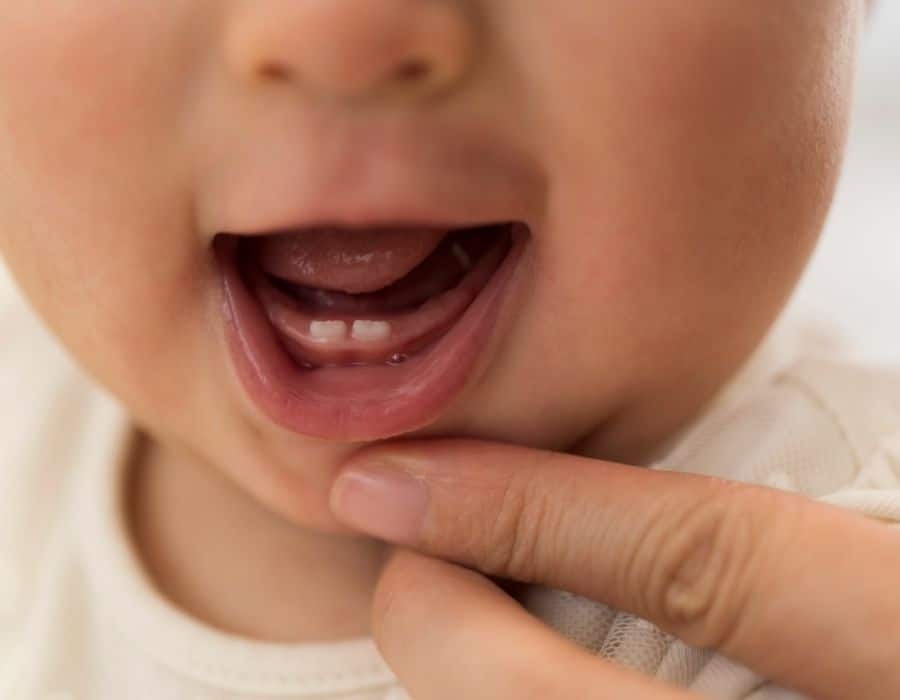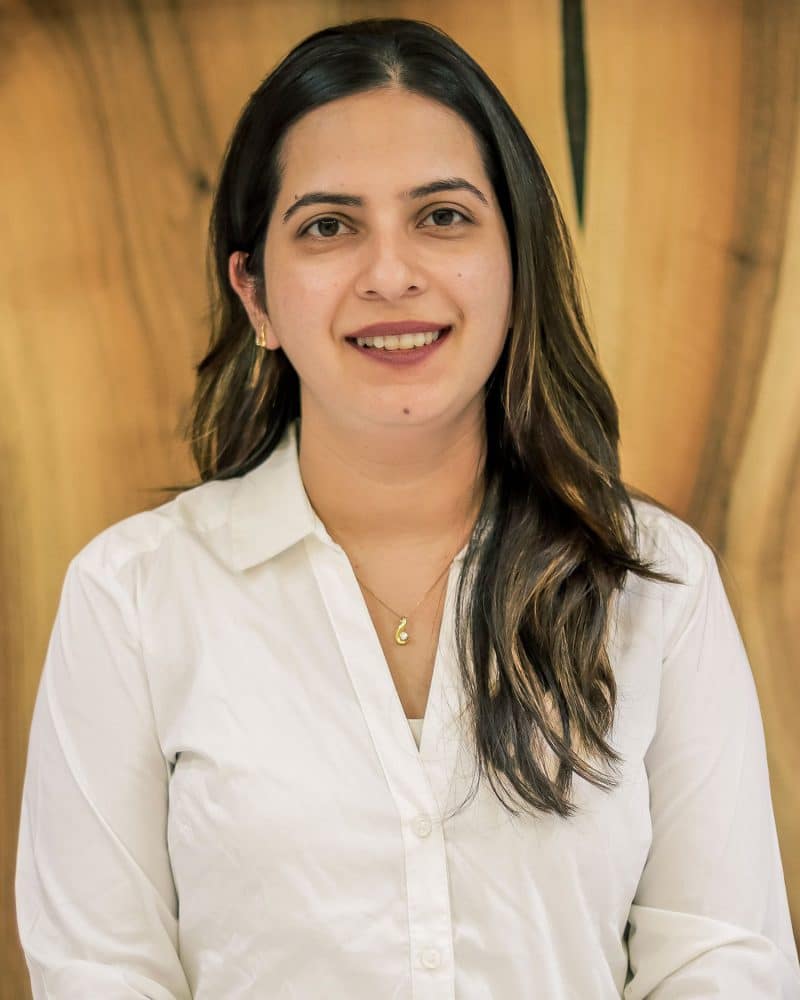A new parent definitely knows when the little one will start ‘teething’! While for some babies this process is relatively easy, others find it to be quite painful. Quiet rarely, in some cases, babies can even develop teeth at or within few days after birth.
What Are Natal Teeth And Neonatal Teeth?
Natal teeth, as the name suggests, are teeth present at birth in newborns. Neonatal teeth, on the other hand are teeth that erupt shortly (within the first 30 days) after birth. Both natal and neonatal teeth mostly occur in the front mandibular (Lower jaw) region of the jaws. They are most commonly spotted at birth by the Neonatal team and referred to the Pediatric dentists.
What Are The Characteristics Of Natal Teeth?
Some natal teeth resemble primary teeth, although they are occasionally somewhat immature and supernumerary (extra). At most times they are mobile (wiggly)
- Natal teeth can be smaller than normal primary teeth.
- They can be conical in shape.
- They can have discoloration.
- They can have underdeveloped roots
What Are The Potential Causes Of A Baby Being Born With Natal Teeth Or Neonatal Teeth?
The exact cause of natal and neonatal teeth in babies is still unknown, but it has been linked to several factors, including genetics, fever, infection, and malnutrition. So far, no research has been able to verify the reason.
Researchers have also linked natal teeth and neonatal teeth with many other syndromes, including the following:
- Cleft lip and palate
- Sotos syndrome
- Ellis-van Creveld syndrome (chondroectodermal dysplasia)
- Jadassohn-Lewandowsky syndrome (congenital pachyonychia)
- Hallermann-Streiff syndrome (oculo mandibulo facial syndrome with hypotrichosis)
What Are The Possible Complications Associated With Natal And Neonatal Teeth?
Complications associated with natal and neonatal teeth can include the following:
- Difficulty in breastfeeding: Natal and neonatal teeth can interfere with a baby's ability to suckle, so it's important to take your baby to the dentist if you notice any natal or neonatal teeth.
- Tongue ulceration: As the teeth are sharp, they can cause ulcers on the under surface of the tongue, a condition commonly called 'Riga Fede Disease'
- Rarely, they can have a risk of aspiration.
If you are concerned about your baby’s natal or neonatal teeth, it is important to speak with your pediatrician or your pediatric dentist as soon as possible for advice on how to best care for these teeth and address any potential complications that they may cause.
How Are Natal And Neonatal Teeth Treated?
Natal teeth and neonatal teeth can be diagnosed by a physical examination of your baby’s mouth. X-rays may be required. A tooth root that is not completely developed might be visible on an X-ray.
In most cases, when the teeth are loose and cause interfering with breastfeeding, the dentist may decide to remove the tooth. This is also done to reduce the risk of a baby swallowing his or her tooth and breathing it into his or her airways. The teeth could also be removed if they are causing harm to your baby’s tongue. Another alternative is to smooth the top edges of the teeth. This protects your baby’s tongue from damage.
And finally when your baby’s milk teeth start erupting (between age groups 6-12 months), here’s our piece of advice:
Here are some tips by Dr. Pratibha Kukreja Pandit To help take Care For Your Baby’s Teeth:
- Brush your baby's teeth twice a day with a soft toothbrush and water.
- Use fluoride toothpaste once your baby is old enough to spit out the toothpaste.
- Schedule regular dental checkups for your baby.
- Avoid any sugar-sweetened foods or drinks, which can increase your baby's risk of tooth decay and other dental problems.
We at Pandit Clinic, Pune, go to every extent possible to ensure that your child receives the finest care and prevention possible. If you have any queries or concerns, please don’t hesitate to contact us at +918805980048 or book an appointment with Dr. Pratibha Kukreja Pandit.
Virtual Video Consultations
100% SAFE AND SECURE CALLS WITH ENCRYPTION. YOUR PRIVACY AND CONFIDENTIALITY IS GUARANTEED.
Start here, by making an appointment for a virtual consultation with our expert Dr. Pratibha Kukreja Pandit (NEW PATIENTS ONLY).
Dr. Pratibha Kukreja Pandit is available for Virtual Video Consultations from Monday – Saturday between the hours of 11 am – 2pm and 4pm – 7pm.
If you are already our valued patient with questions or have an emergency please contact the clinic on +91 9822053446
Consult Dr. Pratibha Kukreja Pandit
(Pediatric Dentist)
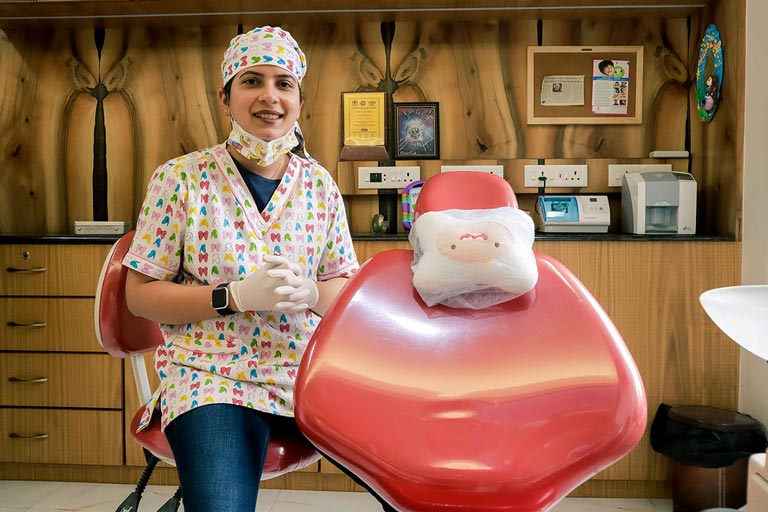
Virtual Video Consultation Fees Rs. 500
The Consultation Fees Must Be Paid Online by GOOGLE PAY BEFORE YOUR APPOINTMENT. See The Instructions On Appointment Confirmations
Your virtual video consultation includes:
- Discussion of problems that your child is facing like tooth pain, swelling or any other emergencies
- Dr. Pratibha will recommend a course of treatment or medications for your child.
Meet the Doctor
Pediatric and Preventive Dentistry Specialist
Dr. Pratibha is the Chief Dentist at Pandit Clinic. She is also a Consultant Pediatric Dentist at Kotbagi Hospital and KEM Hospital, Pune.
Dr. Pratibha has trained at the prestigious Chang Gung Memorial Hospital, Taiwan, in advanced areas including Pediatric dental treatment under General Anesthesia and Intravenous sedation, Dental Rehabilitation of children with special health care needs, and Nasoalveolar molding and dental rehabilitation of cleft lip and cleft palate.
She’s the lifetime member of Student Clinician Association, American Dental Association (SCADA), USA.
Professional Affiliations and Skills
- Trained in Pediatric dental treatment under General Anesthesia and Intravenous sedation at Chang Gung Memorial Hospital, Taiwan
- Trained in Dental Rehabilitation of children with special health care needs at CGMH, Taiwan
- Trained in Nasoalveolar molding and dental rehabilitation of Cleft lip and Cleft Palate at craniofacial centre, CGMH, Taiwan
- Awarded Lifetime membership, SCADA (Student Clinician Association, American Dental Association), USA.
You Might Be Interested In
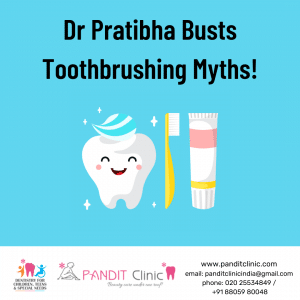
7 Common Toothbrushing Myths Busted!
Toothbrushing is a vital element for good dental care. It prevents many oral problems such as cavities and tooth infections. Getting a kid to brush

How Is Inhalation Sedation Used To Treat Dental Anxiety?
Dental anxiety is a fear or phobia of visiting the dentist. It’s a very common problem, and it can be caused by several different things.




